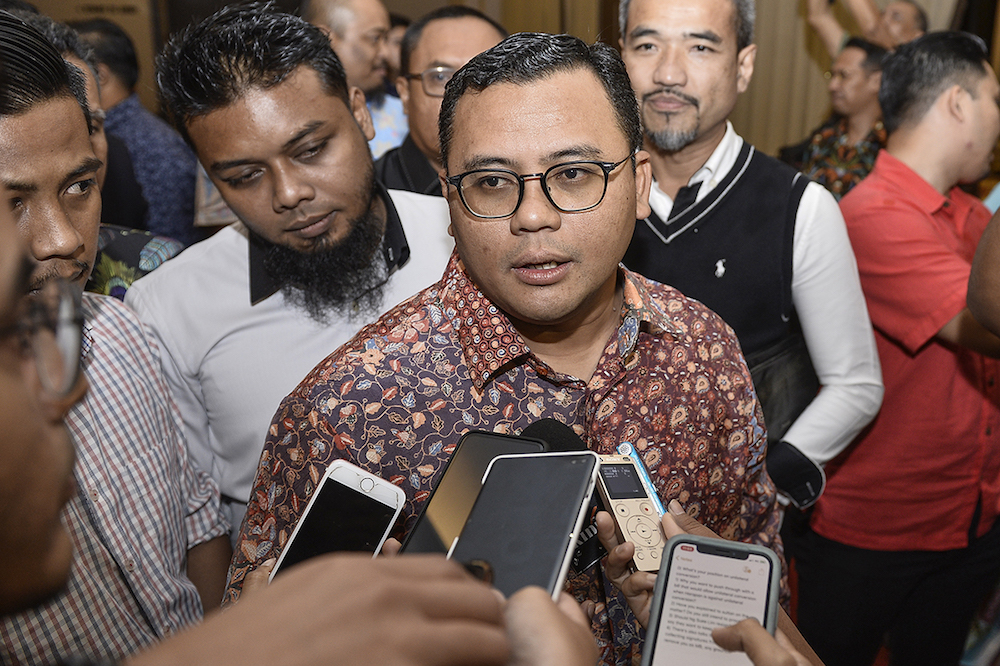KUALA LUMPUR, Aug 9 — The Federal Constitution stipulates that any attempt by the state to introduce any laws which are inconsistent with the country’s most supreme law is void, the National Human Rights Society (Hakam) stressed today.
Hakam said the Bill for an enactment allowing unilateral conversion of children into Islam, which was to be tabled in the Selangor State Legislative Assembly, contradicts the ruling of the Federal Court in the watershed M. Indira Gandhi case.
It claimed the apex court clearly held that Article 12(4) of the Federal Constitution must be read to mean that both parents’ consent is required to determine the religion of a child.
“Hakam urges all Selangor State Legislative assembly persons to pay due regard to Article 75 of the Federal Constitution, which states that any laws passed by the states which are inconsistent with the Federal Constitution are void,” Hakam’s secretary-general Lim Wei Jiat said in a statement.
“Hakam also calls for all parties to take note of the Federal Court’s reference to Section 5 of the Guardianship of Infants Act 1961, which provides Malaysia’s underlying family policy that a mother shall have the same rights and authority as the law allows to a father; and the rights and authority of mother and father shall be equal.
“Furthermore, the welfare of the child is of paramount consideration. It is undesirable for a significant decision such as the conversion of a child to be made without the consent of both parents, and any such attempts are arguably not done in the child’s best interests,” he added.
A group led by Selangor Mentri Besar Amirudin Shari attempted to table the Bill at the last Selangor state legislative assembly but could not do so because the most recent assembly sitting which was originally scheduled for nine days was cut short to two days.
Selangor Speaker Ng Suee Lim was accused of shortening the sitting but he has denied that the shortened sitting was due to disagreement between him and the Amirudin over the Bill, saying that as the Speaker, he is only concerned with the management of the Dewan Negeri and is neutral on political matters while in the House.
The Speaker clarified that the session was adjourned due to the low turnout of assemblymen during debates on the issues tabled during the session, adding that the unilateral conversion Bill was merely a rumour and never listed on the Order Paper.
Since then, DAP have come out strong in their rejection of the Bill with Selangor DAP chairman Gobind Singh Deo, his brother and national legal bureau chairman Ramkarpal Singh, party secretary-general Lim Guan Eng and many more saying it is unnecessary to debate the Bill on the unilateral conversion of minors to Islam in the Selangor State Assembly.
This is due to the fact that a Federal Court ruling has determined such conversions require the consent of both parents, and as such, any state legislation is bound by the same ruling.
This was evident in Indira’s case whereby her husband Muhammad Riduan Abdullah kidnapped her then 11-month old daughter in 2009 and converted her and her two other children to Islam without their knowledge and without Indira’s consent, before going to the Shariah court just a few days later to obtain custody rights for them.
This sparked a court battle for nine long years, as Indira, a Hindu, fought to gain custody of her three children — Prasana; Karan Dinish, 19; and Tevi Darsiny, 20 — and to quash their conversions.
The battle finally ended in January 2018, when the Federal Court nullified their conversions and ruled that consent of both parents was needed to convert a minor.
Hakam said this is why the law shouldn’t be tabled as it has been abused before.
“More often than not, as in the case of Indira Gandhi, it is the parent from the minority religion who is disadvantaged under the law and suffers the greatest hardships,” Lim continued in the statement.
“One must not forget that at the end of the day, the foundational principles of the Federal Constitution were built to protect the various diverse communities and religions. It would be most unfortunate if such delicate compromise is undermined in the New Malaysia.”



















